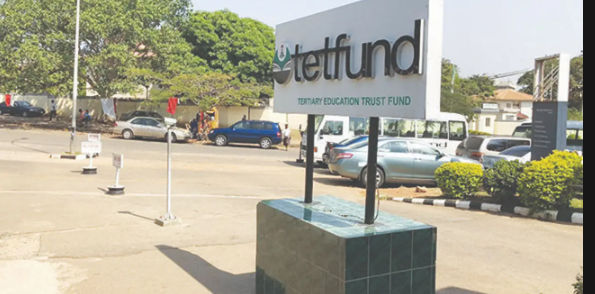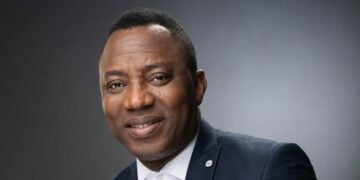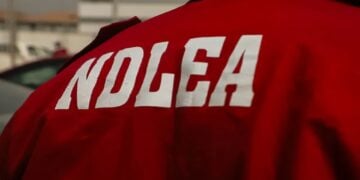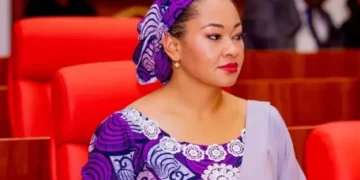The Tertiary Education Trust Fund (TETFund) has stressed the need for all stakeholders to unify efforts to reposition tertiary institutions for the challenges of the times.
TETFund Executive Secretary, Arc Sonny S.T. Echono stated this at a two-day Interactive Session with the Unions of beneficiary institutions, universities, polytechnics, and colleges of education.
The interactive session, according to Echono, was conceived as a proactive engagement against the backdrop of the prevailing challenges, and to sustain the steady growth and development of the tertiary education sub-sector.
He restated that the unions play a significant role not only in the development of our tertiary institutions, but of the entire education sector and the country through their various activities and contributions.
“The unions, viewed in positive light remain empowerment groups and there would have been little or no effectiveness in the nation’s educational system without these unions; ASUU, ASUP, COEASU and the non-teaching unions NASU, SSANU, NAAT etc.
“The unions accordingly remain stakeholders that should be encouraged. Several studies have shown that strong unions could lead to innovation while lecturer/teacher leadership and empowerment has been identified as a key factor for all unions.
“It is because we recognize the role the unions play in the development of education that we constantly engage them in our interactive activities. We believe that you have contributions to make to our activities and programmes.
“It is also a fact that issues related to industrial strike affect the development of education in the country. Studies have shown a link between poor student performance and industrial strike by unions.
“The arguments generally are that the quality of teaching and learning will significantly improve when teaching and learning are uninterrupted.
“Furthermore, building world class institutions requires a consistent and regular academic calendar and this is often affected by industrial strikes.
“However, a closer look will also show that many industrial strikes by the unions were for the improvement in teaching and learning conditions for both staff and students.
“It is for these reasons that sessions like this are organized to deliberate and find common grounds on issues of mutual interest and benefits. There is the urgent need for all stakeholders to unify efforts to reposition our tertiary institutions for the challenges of the times,” Echono said.
According to the Executive Secretary, the unions are part of the history of the establishment of the Tertiary Education Trust Fund.
In the 1980’s, he said the decay of all tiers of education in Nigeria became glaring as facilities had almost collapsed; teachers and lecturers’ morale were at its lowest and the enabling environment for conducive teaching and learning was absent.
He noted; “The administration of President Ibrahim Babangida took measures to arrest the rot. In December 1990 the federal government constituted the Commission on the Review of Higher Education in Nigeria (the Gray Longe Commission) to review the post- independence Nigerian Higher Education system after Lord Ashby’s Commission of 1959.
“The Longe Commission recommended among others the funding of higher education through earmarked tax to be bome by companies operating in Nigeria. An implementation committee under the chairmanship of Professor Olu O. Akinkugbe was constituted to implement the Grey Longe’s Commission report recommendations.
“Subsequently, an Agreement was signed between the Federal Government and ASUU on the 3rd of September 1992 on funding of universities. In January 1993, the Education Tax Act was promulgated alongside other education related Decrees.”
He further said the Education Tax Act of No7 of 1993 mandated the Fund to operate as an Intervention Fund to all levels of public education (Federal, State and Local).
This mandate, according to him, was faithfully discharged between 1999 to May 2011 when the Education Tax Act was repealed and replaced by the Tertiary Education Trust Fund Act, due to identified challenges in operating the Education Trust Fund.
Speaking further, he expressed hope that the interactive session will provide an enabling environment for us to understand some of our challenges and difficulties in the delivery of quality education in our institutions and thereby make meaningful contribution to the successful execution of the objective of the Fund.
“As you all know our primary mandate is to rehabilitate, restore and consolidate Tertiary Education in Nigeria, using funding alongside project management.
“The session is also expected to serve as a platform to discuss and mitigate incidences of industrial disputes in the tertiary education sector and look at ways to prevent and avoid their occurrences.
“Furthermore, the interactive session shall afford the opportunity to build and solidify cooperation and collaboration between the Fund, its.
beneficiary institutions and the Unions on matters that affect the growth and development of tertiary education in Nigeria.
“As stakeholders and partners, we intend to share with you all that we have done and continue to do,” he said.
Echono, who said the primary responsibilities of our tertiary institution is the development of human capital through the advancement of knowledge, skills, and other competencies, said the trend globally is tilting towards digital and innovative knowledge to tackle global challenges in accordance with the UN sustainable development goals, as a nation, we are still far from attaining this goal.
He said the global community as reflected in the UN development goals 2030 has called for unified efforts for the development and improvement in tertiary education. It is for a similar purpose that the tertiary Education Trust Fund was established by the federal government of Nigeria.
Echono also disclosed that the Fund currently provides intervention in Two Hundred and Fifty three (253) public tertiary institutions in Nigeria which are 99 Universities, 79 Polytechnics and 75 Colleges of Education, saying that the Fund has recorded laudable achievements under its various intervention lines since its establishment.
“These include various infrastructural projects across Universities, Polytechnics and Colleges of Education that range from classrooms, theatres, to halls and laboratories.
“The Fund has equally provided sponsorship to thousands of scholars and lecturers across tertiary institutions in Nigeria for academic staff training and development as well as conference/ workshops attendance both locally and overseas. It has further equipped and sponsored the publication of books and manuscripts and provided grants to scholars and lecturers under both the NRF and IBR grants.”
Echono further expressed hope that the interaction will bring up issues of concerns that will not only enable us address the areas of intervention in our institutions but also espouse gaps and shortcoming that have resulted in strikes and interruptions of academic sessions, with a view to mitigating them.
“I am convinced we can collectively change the narrative.”
In his keynote address on the Role of Trade Unions in TETFund Intervention Activities, Comrade Ayuba Wabba commended the leadership of TETFUND for its commitment to excellent service delivery.
He said, “It takes a man of steel, integrity, and altruism to engage the unions in this kind of lesson learning and institutional improvement process. We certainly need more people like you and members of your team at the helms of our public institutions.
“I must also very specially commend the commitment of our trade unions in the tertiary institutions for serving not just as the watchdogs of standards in our society but also for actually serving as the conscience of our country.
“While some ignorant persons would dismiss your service to the fatherland amidst great deprivations as trouble making, history will continue to remember you for making the right kind of troubles for the development of not just a vibrant tertiary education system in Nigeria but also the building of a society where no man or woman is oppressed – a society built on the strong foundations of ideological clarity cum persuasions, truth, equity, and justice,” he said.





